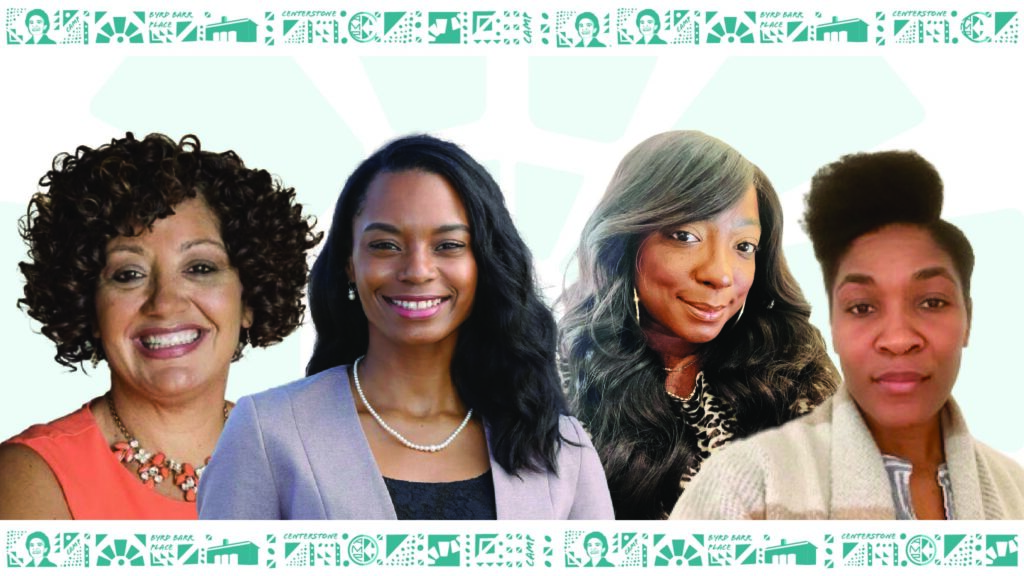In celebration of Women’s History Month in March, we had the special opportunity to sit down with a few Black women leaders in Washington state doing this critical work. They shared their passions and visions for an equitable future and the Black women whose stories inspire them daily.
What is your work and your passion?
Regina Malveaux: I’m proud to be the chief impact officer at United Way of King County, where we are working side by side with communities to build an equitable future for everyone. Last year we invested over $42 million in critical services like rental assistance, home grocery delivery, summer meals, and community organizations across King County.
T’wina Nobles: Public service is really what I do. I’m passionate about being a role model and an example for my kids and other community members. I have evidence in my own life and personal story, where people stepped up to be a resource to me and my family, which really helped us rise above a lot of challenges.
Paula Sardinas: I am dedicated to advancing social justice and equity through my work as a lobbyist, political analyst and advocate. I’m deeply passionate about addressing systemic inequalities and empowering communities marginalized by society to create positive change. I have shepherded over 10,000 bills into law in 12+ states and secured over $2 billion in state and federal appropriations for underserved and marginalized communities over my 30-year career.
Tiffany Kelly-Gray: My work is to give a boost to groups that are underrepresented in the rooms that hold the most power. The goal is to positively impact the communities who didn’t have a seat at the table, didn’t have the food that everyone else was given, or didn’t have all the experiences needed to fully participate in society.
What does an equitable future look like to you as a Black woman?
Regina Malveaux: As a Black woman I believe an equitable future is one where our contributions are solicited and celebrated. It’s one where our ideas aren’t appropriated by others without credit. And, it’s one where we are respected for the unique talents and perspectives that we bring to the spaces we inhabit.
T’wina Nobles: An equitable future means I am empowered to both receive what I need and give to others at the point of their need. It’s about understanding what this group or this individual needs on this day, in this moment, instead of our idea of what we think someone needs.
Paula Sardinas: As a Black woman, an equitable future means dismantling systemic barriers that disproportionately affect marginalized communities. It entails access to quality education, healthcare, housing and economic opportunities regardless of race or socioeconomic status. It involves fostering inclusive policies and practices that promote social justice, fairness and empowerment for all individuals.
Tiffany Kelly-Gray: That Black people can walk into a space and never assume they are being judged by their Blackness. A future where my kid never once thinks she’s getting less because she’s Black in terms of education, upward mobility and health care.
Who is a Black woman leader who inspires your work and how?
Regina Malveaux: Marian Wright Edelman, president emerita and founder of the Children’s Defense Fund (CDF). I’m honored to have started my advocacy and social services career as an intern for CDF. Mrs. Edelman inspired me to pursue and obtain a law degree from Howard University. I’m grateful for her leadership and legacy and for having had her in my life.
T’wina Nobles: Sarah Jakes Roberts. I admire a woman who can say these are my flaws and mistakes, here’s where I’m not perfect, and here’s where I am powerful and can lead, and here are my gifts and talents.
Paula Sardinas: I have always found inspiration in my grandmother, Carrie Lee Fillmore. Born on the land where her great-grandparents were slaves, my grandmother instilled in me the belief that anything is possible and that the only limitations one faces are those self-imposed. She emphasized the beauty of Blackness and the unparalleled work ethic of Black women, leaving a legacy of resilience and determination.
Tiffany Kelly-Gray: Stacey Abrams. I know that her growing up in the South she experienced push back at every step, but she doesn’t seem to have let that touch her soul. She still shows up as whole, vulnerable and willing to do the work, even when the world is acting a fool.


